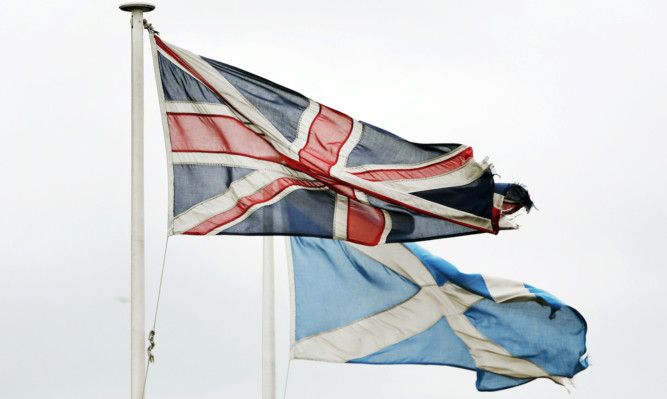
“Across the world, the referendum has been making headlines for very good reasons.”
Amongst all the argy bargy of the past week, there was one fabulous statistic.
97% of voters, or almost 4.3 million people, have registered to vote in the independence referendum an all-time Scottish high and most are certain to turn out on Thursday.
Pollsters ICM say 87% of voters are “absolutely certain to vote” far more than the 55% dead certs for Westminster elections.
Dundee has had a 7.7% rise in wannabe voters almost twice the Scottish average. So it’s all still to play for.
And the unprecedented interest doesn’t just stop at our borders. Across the world, the referendum has been making headlines for very good reasons.
After a shamefully complacent attitude from Westminster for years, last weekend’s YouGov poll shocked the No campaign into action.
A mass rush to Euston followed as 90 Labour MPs headed up to press the flesh and love-bomb errant Glasgow voters.
There was also a rehash of old threats by big business. Asda warned food prices could rise if Scots vote Yes.
But there was less coverage when Morrison’s predicted prices might fall, Tesco anticipated no change and the BBC’s Economic Editor Robert Peston revealed No. 10 had orchestrated the food price scare in a Downing Street meeting with supermarket chiefs. Naughty, naughty.
Actually, common sense suggests Asda will have to keep prices low or face a Scottish wipeout. But the Press didn’t probe that nor did they ask why prices would rise.
Currently, food produced in Scotland heads down to distribution centres in England before travelling back at great expense. So if independence tackled the practice causing those costly and wasteful food miles, Scots consumers would be happier, food would be cheaper and fresher and the environment would be happier as well.
Standard Life were next to make waves by repeating an earlier threat to move some jobs south. A day later they watched millions wiped from their share price.
The papers blamed the prospect of independence. But the markets could have been more worried about the UK Government’s total lack of preparedness for anything but a No vote.
Once again though, Standard Life didn’t threaten a move to London lock, stock and barrel. They suggested some assets and staff might shift to “ensure assets and liabilities remain well matched”. Those in the know think that means few staff will move.
For one thing, the headquarters function of banking is shrinking all the time the bulk of staff are employed in branches.
For another, moving to London means higher salary, office and housing costs, longer journeys to work, and lower retention of less qualified staff.
One fund manager said: “In a people business, the wholesale relocation of Standard Life would not only be enormously costly, it would require the near-reinvention of the company.”
Meanwhile, a Scottish insurance broker chum living in Bath told me: “I get the 5.30 train to London every day. It’s the only way to guarantee a seat in first class.”
That’s life in the fast lane, folks. No wonder so many fund managers prefer a house in the leafy suburbs and a quick jog across the Meadows to work instead.
As for banks moving Lloyds already is headquartered in London and RBS will be moving a plaque, not necessarily a single job.
It looks like the only banks Scotland will lose by voting Yes is food banks. And surely that ain’t bad.
Thursday will be an exciting climax to a fascinating, robust debate. So may your choice reflect your highest hopes not your worst fears!

Enjoy the convenience of having The Sunday Post delivered as a digital ePaper straight to your smartphone, tablet or computer.
Subscribe for only £5.49 a month and enjoy all the benefits of the printed paper as a digital replica.
Subscribe